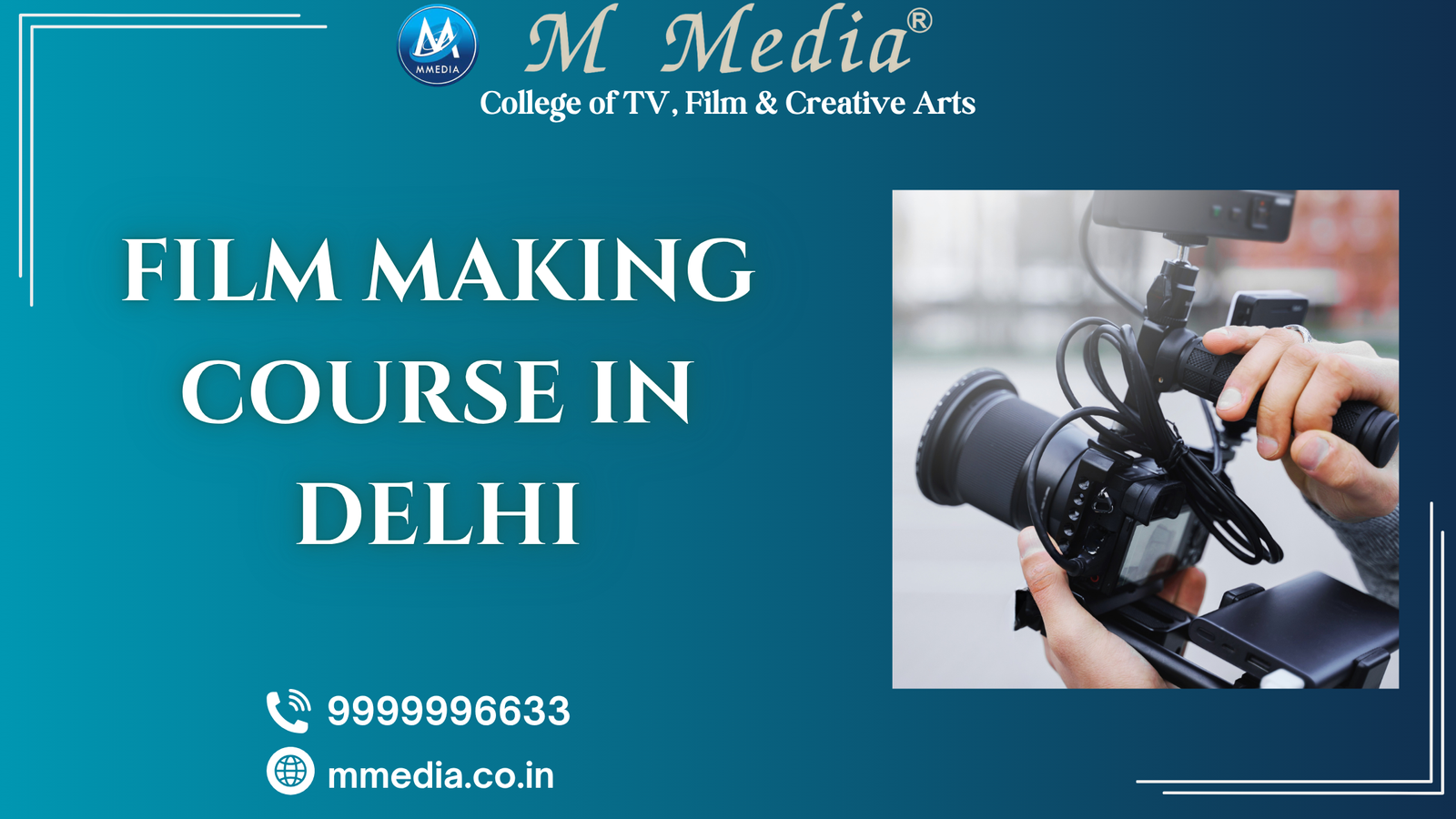
Filmmaking is an art form that brings together storytelling, technology, creativity, and collaboration. A filmmaking course is a structured program that teaches aspiring filmmakers the various elements of film production — from scriptwriting and directing to editing, cinematography, and post-production.
As the film, TV, and digital content industries grow rapidly, there is a rising demand for trained professionals who understand both the artistic and technical aspects of film creation. A filmmaking course offers a systematic path for individuals to develop skills, gain hands-on experience, and build a foundation for a successful career in the media and entertainment industry.
Whether you aim to become a director, screenwriter, cinematographer, editor, or producer, a good filmmaking course can help sharpen your craft, expand your network, and build your confidence to bring stories to life.M Media, the College of TV, Film n& Creative Art is one of the best institute for Filmmaking Course In Delhi.
IMPORTANCE
Structured Learning Approach
Filmmaking is a combination of art, technique, and collaboration. A proper course gives you a step-by-step understanding of each department—screenwriting, direction, lighting, sound, editing, etc.—so you don’t miss any crucial aspect.
Guidance from Industry Experts
Most filmmaking courses are taught by professionals who have real-world experience. Their feedback helps students understand what works in actual film projects.
Exposure to Professional Equipment
Good filmmaking requires the right tools. A course allows students to work with industry-standard cameras, lighting setups, editing suites, and audio tools.
Hands-On Practice
Theory alone isn’t enough. A filmmaking course includes practical exercises where students make short films, documentaries, and even ad films—giving them confidence and real experience.
Team Collaboration
Filmmaking is a team effort. Through group projects, students learn how to collaborate, handle creative differences, and manage time and resources efficiently.
BENEFITS:
Versatile Career Opportunities
After completing a filmmaking course, students can work in various fields such as:
- Film & Television
- Advertising
- Documentaries
- Music Videos
- Web Series / OTT Platforms
- YouTube and Social Media Content Creation
- Freelance Projects
- Cinematography, Editing, Writing, or Directing roles
Practical Experience
By the time students graduate, they’ve already worked on real projects. This hands-on experience puts them ahead in job applications and freelance gigs.
Job Readiness
Many filmmaking courses prepare students not only with creative skills but also with industry knowledge like pitching, budgeting, copyright laws, distribution models, and marketing strategies.
Personal Growth
Filmmaking develops problem-solving, leadership, communication, and time-management skills. Students also gain emotional intelligence and empathy by exploring human stories and characters.
Confidence and Professionalism
Filmmaking courses train students to present their ideas, receive feedback, and work under deadlines—all of which boost confidence and build a professional attitude.
Creative Independence
Some courses encourage independent filmmaking, giving students the skills to write, shoot, and edit their own films. This independence is valuable in today’s content-driven world.
Awards & Recognition
Short films made during a course can be submitted to student film festivals, competitions, or YouTube channels. Many student filmmakers receive early awards or recognition, which boosts their profile.
Freelance & Business Opportunities
With enough training and experience, many graduates start their own production houses, freelance businesses, or YouTube channels, turning their passion into profit.


